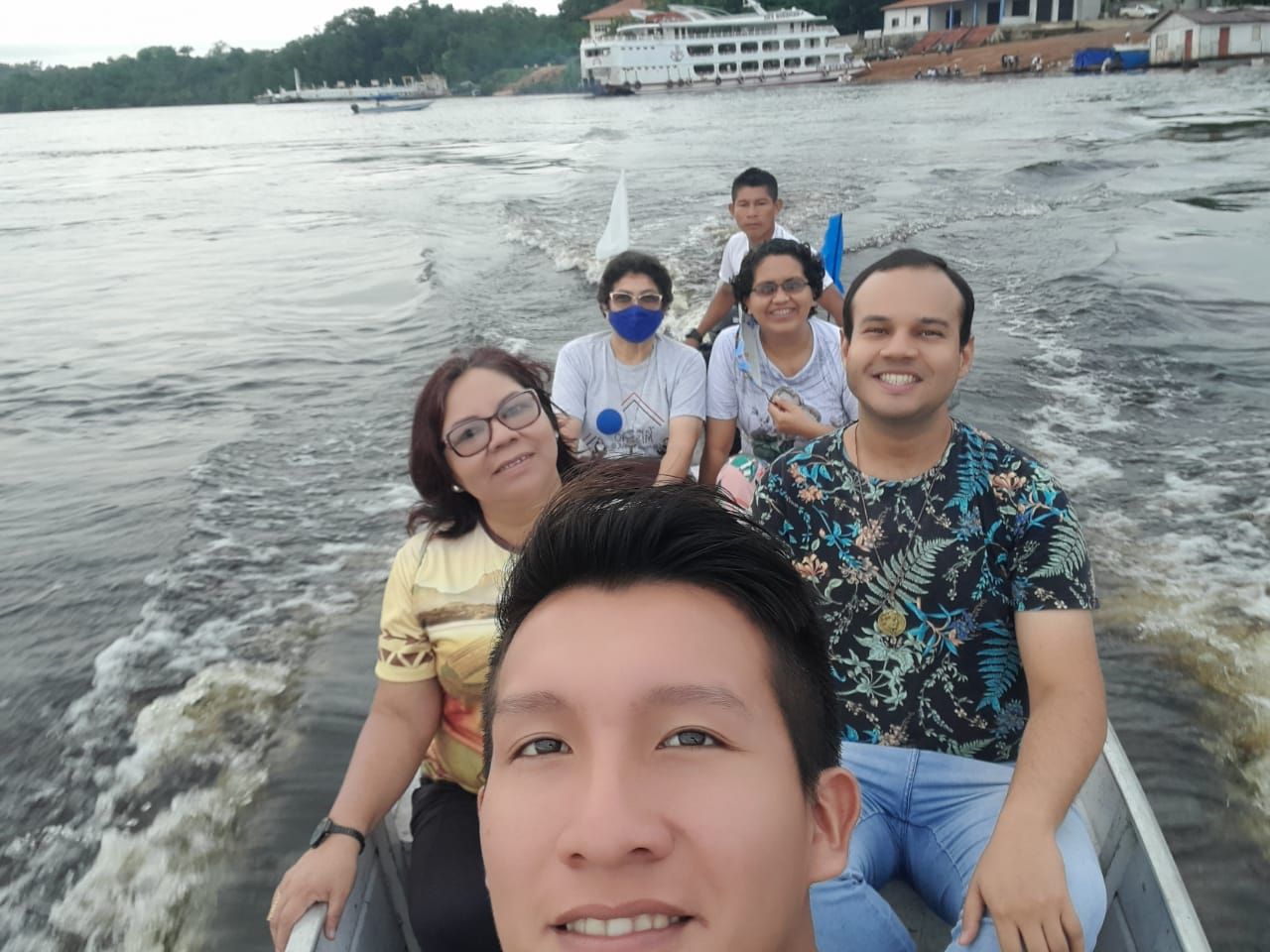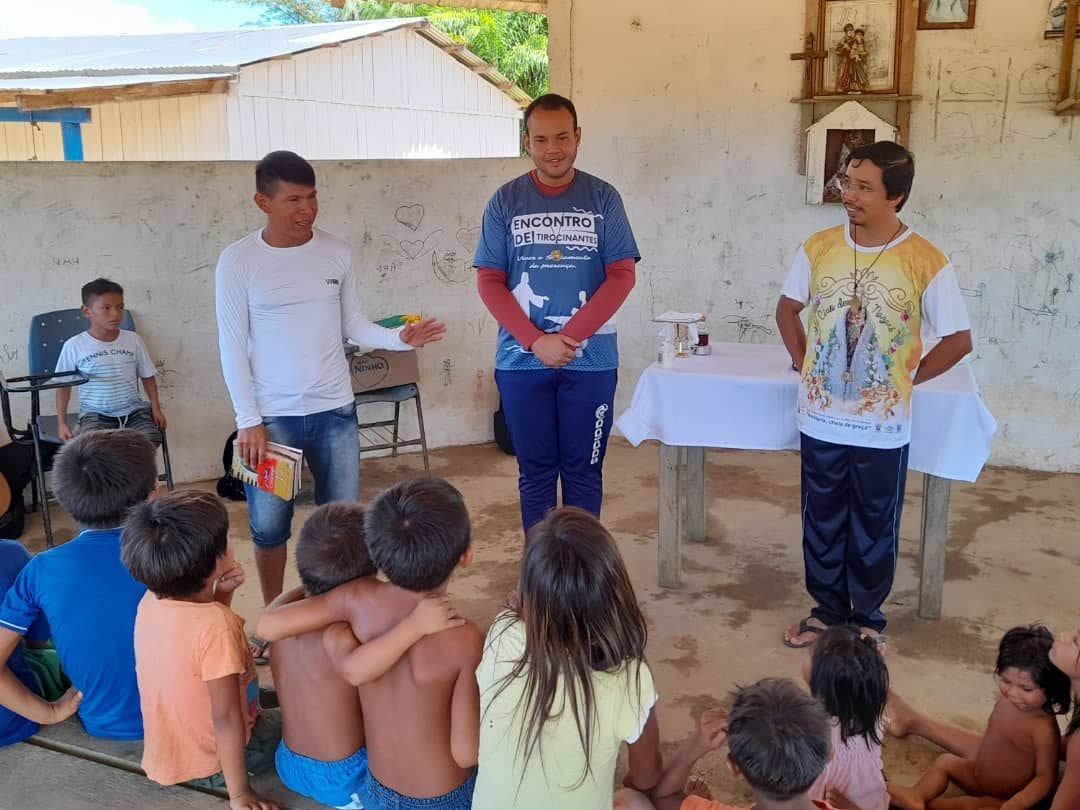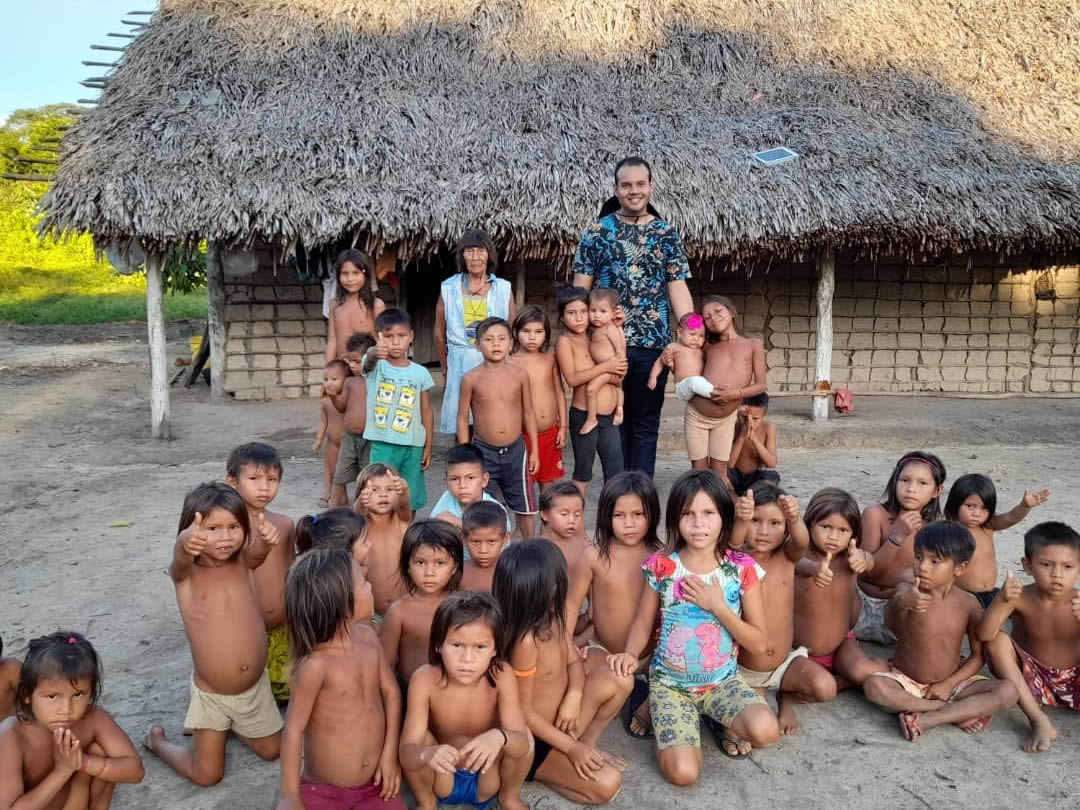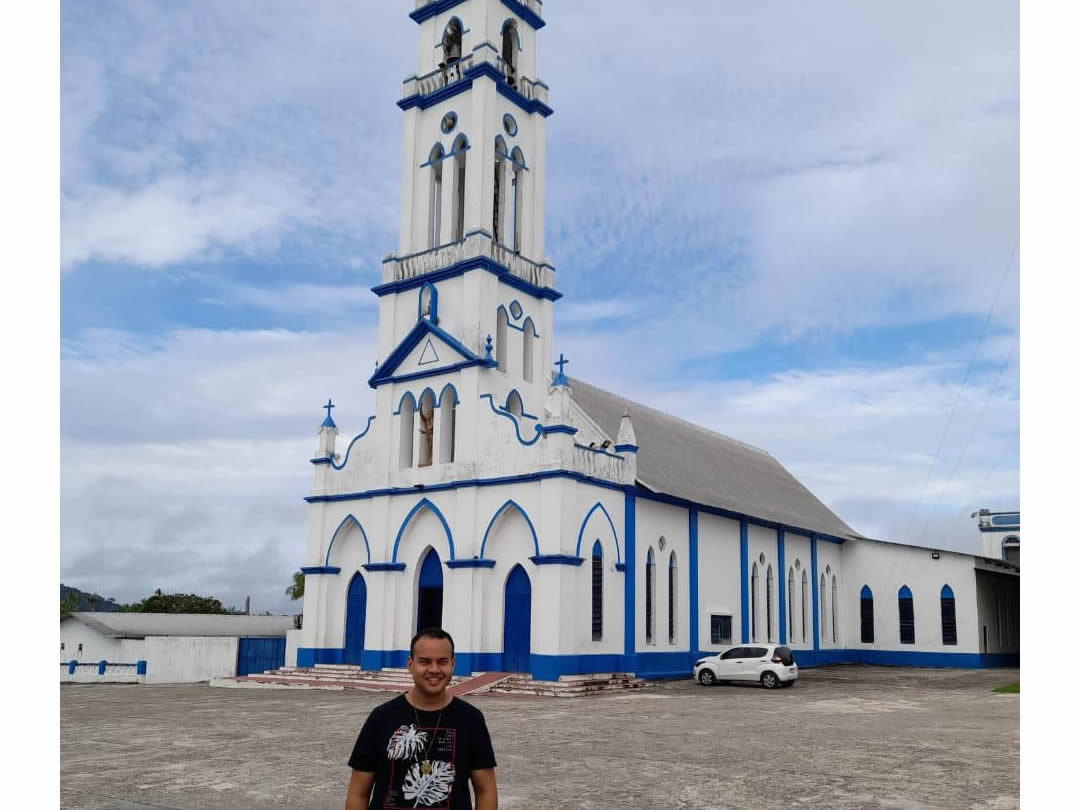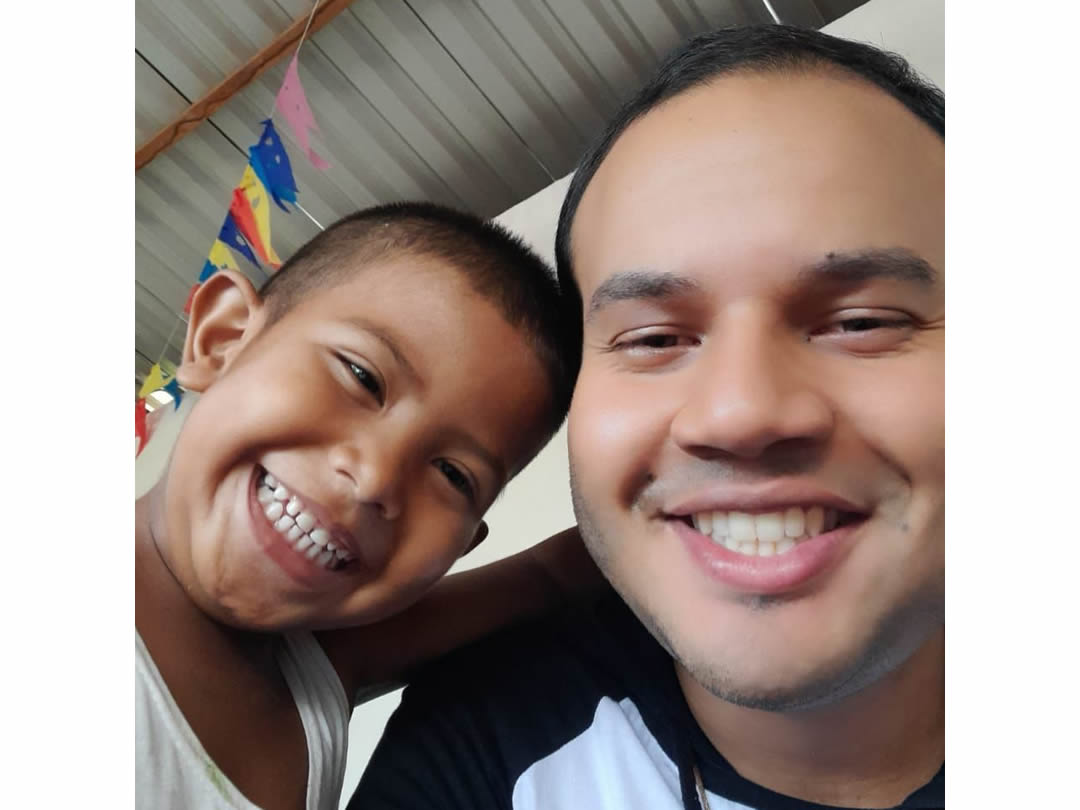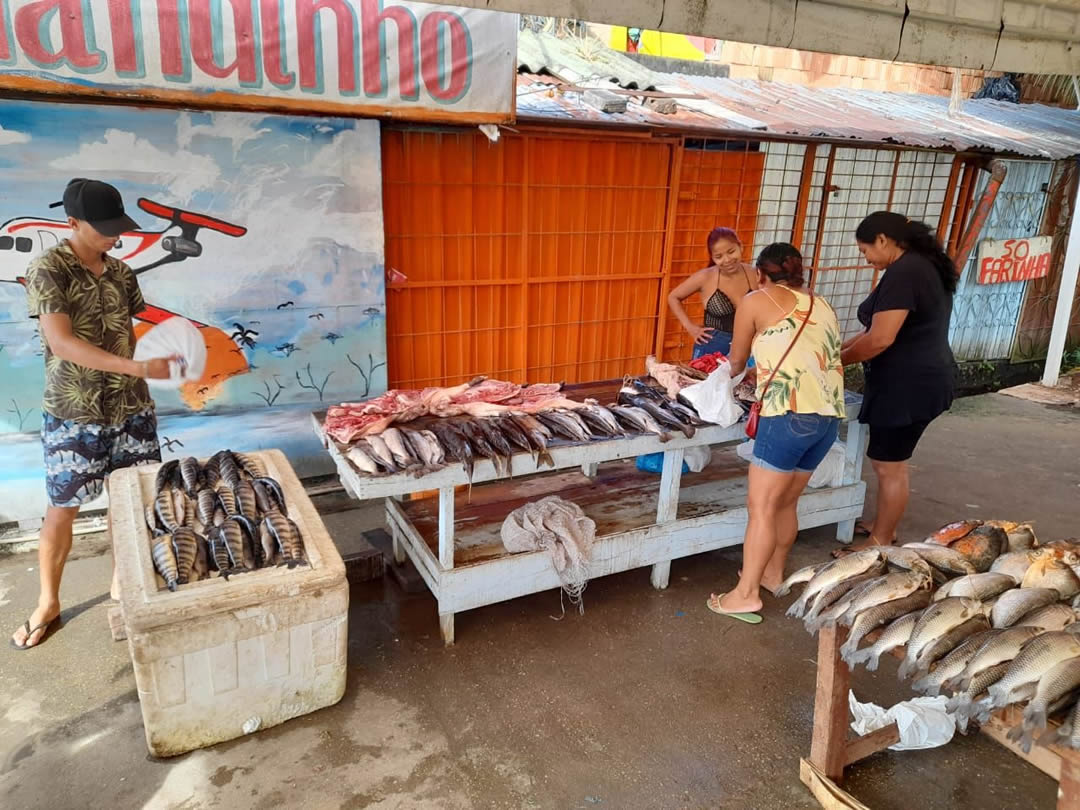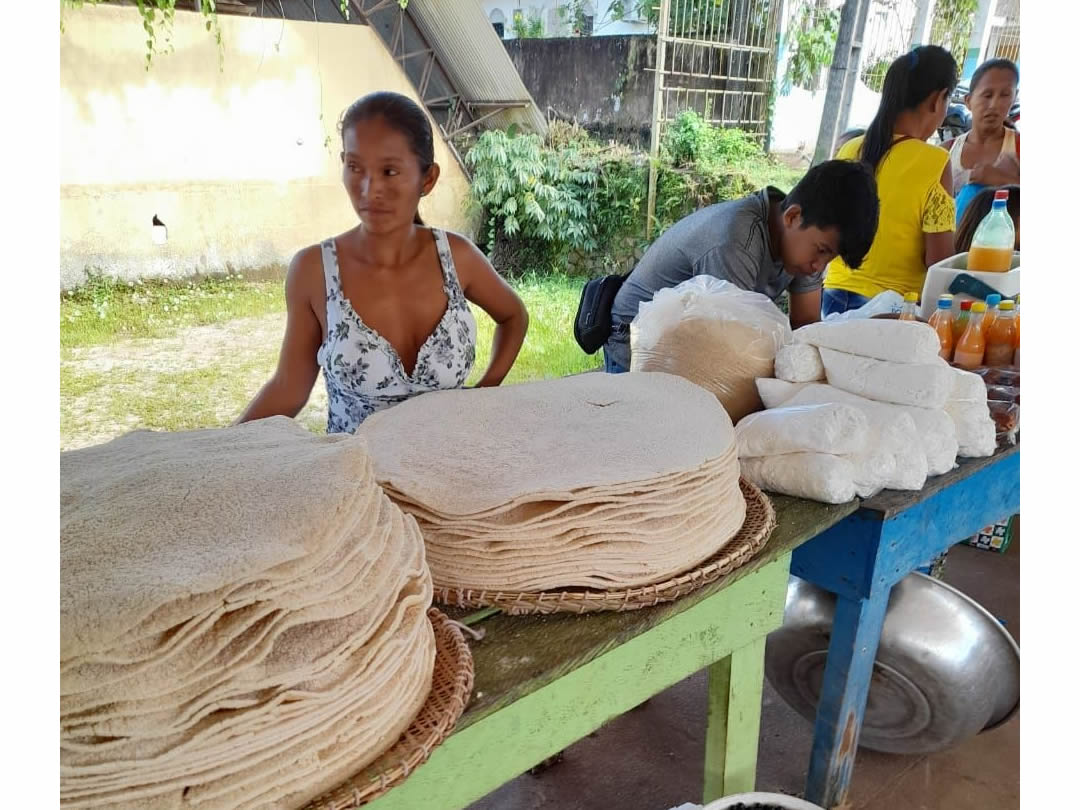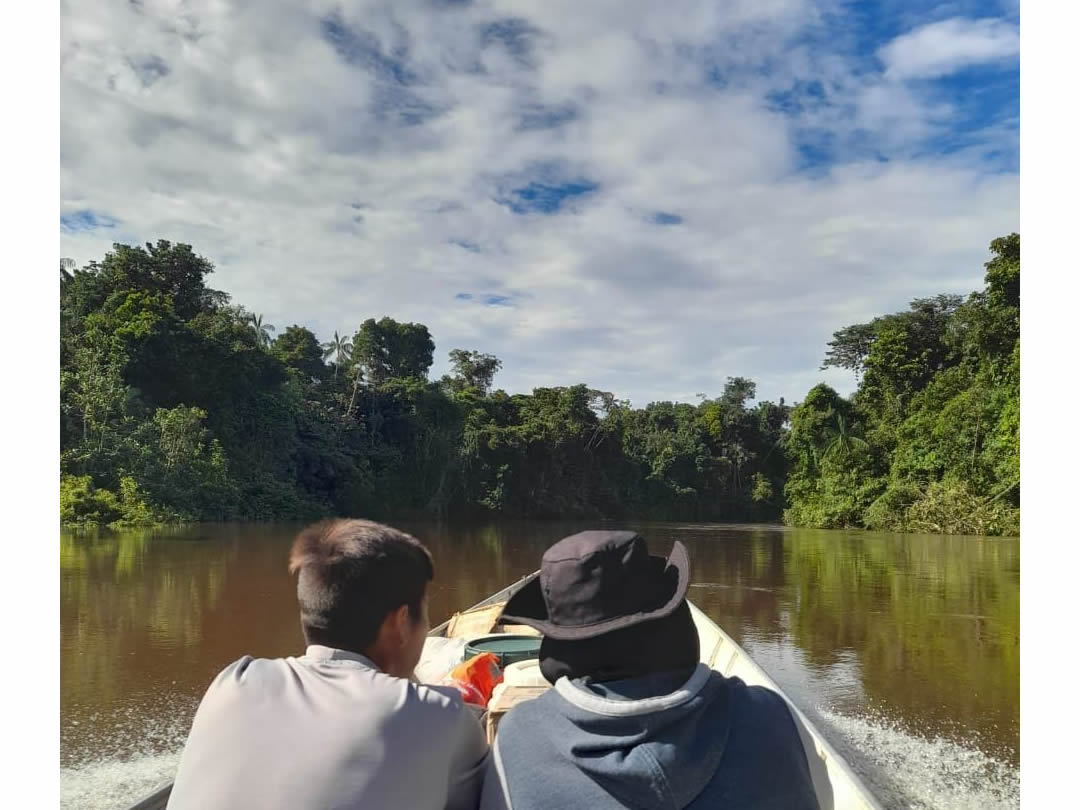Reading time: 8 min.
To be a missionary in Amazonia is to allow oneself to be evangelised by the forest
The beauty of the indigenous people of Rio Negro conquers hearts and causes our own heart to change, to expand, to be surprised and to identify with this land, to the point of it being impossible to forget “dear Amazonia”! This is the experience of Leonardo, a young Salesian in the heart of Amazonia.
How did the idea of being a missionary arise in your heart?
This desire matured within me over many years of listening to the stories of Salesian missionaries, their witness as bearers of the love of God to the world. I have always admired these confreres who experienced divine love in their lives and could not remain silent; rather they felt compelled to announce it to others so that they too could prove how much they were loved by God. So it was that I asked to have an experience in the Salesian missions in Amazonia among the indigenous peoples. In 2021 I began to live and work as a “practical traineee” in the São Gabriel da Cachoeira missionary community, in the state of Amazonia. It was a real “missionary school”, full of new discoveries and experiences, of unimagined challenges, facing realities totally unknown to me until then.

What were your first impressions on arriving in an unknown land?
From the first moment that I looked out the window of the plane and saw the vastness of the forest and the many rivers, my mind “clicked”: I really am in Amazonia! Just as I have always seen on TV, the Amazon region is of exuberant beauty, with beautiful natural landscapes, true masterpieces of God the Creator. Another very beautiful first impression was seeing so many indigenous brothers and sisters, with such striking physical characteristics, such as the colour of their skin, their bright eyes and their black hair. To see the diversity and cultural richness of Amazonia is to remember our history, to remember our origin as Brazil and to understand better who we are as a people.
And why the choice of the Amazon? What is special about it for you?
The Church, including our Salesian Congregation, is essentially missionary. However, in the Northern region this is even more so because the territories are immense; access, generally by river, is difficult and costly; the cultural and linguistic diversity is vast and there is an enormous lack of priests, religious and other leaders who can carry out evangelization and the presence of the Church in these lands. Therefore, there is a lot of work and “heavy”, demanding work. It is not only the service of visits, preaching, celebrating the sacraments, as one might think of missionary life, but it means sharing the life and work of the people, carrying heavy burdens, feeling the need, exclusion, and abandonment of the people by the politicians; spending hours on the road or on the river; feeling the stings of insects; eating the food of the simple people “seasoned” with the spices of love, sharing and of welcome; listening to the stories of the elderly, often with words and expressions that we do not understand well; getting muddy feet and clothes, unheated cars; being without internet and, sometimes, even without electricity… All of this is involved in Salesian missionary life in Amazonia!
Tell us something more about the Salesian work where you have lived? What do the Salesians do for the young people of the region?
One of the purposes of our Salesian community in Sao Gabriel is the Oratory and Social Work: it is the Salesian playground, our direct work with the young people of “Gabriel” who frequent our Oratory every day and find in our house a place to play, have fun and live in a healthy way with their friends and colleagues. The young people here love sports, especially the national passion that is football. As the city does not offer many options for leisure and sport, the kids are present at our work all the time we are in operation and they complain a lot when it’s time to end the day’s activities. An average of 150 to 200 young people pass through our work every day. Besides this, the Salesian Missionary Centre offers courses for teenagers and older youth, such as computer and bakery courses.
And if a young person, knowing you and liking the charism, expresses the desire to become a Salesian, is there a way to be formed as such?
Yes, for some years now our community has also been running the Centro de Formaçao Indígena (CFI), which aims at accompanying and welcoming young indigenous people from all our missionary communities who want to follow vocational accompaniment and be helped in drawing up a Life Project. This accompaniment is what the Indigenous Aspirantate of the Salesian Missionary Province of Amazonia (ISMA) is all about. Besides offering this formation process, CFI offers classes in Portuguese, Salesianity, computer and bakery courses, spiritual and psychological accompaniment and gradual insertion within Salesian life. It is really an experience that is highly valued by them, since they are the first steps on the formation journey and it is done in their environment, with their people, with the affection and closeness of the Salesians and lay leaders.
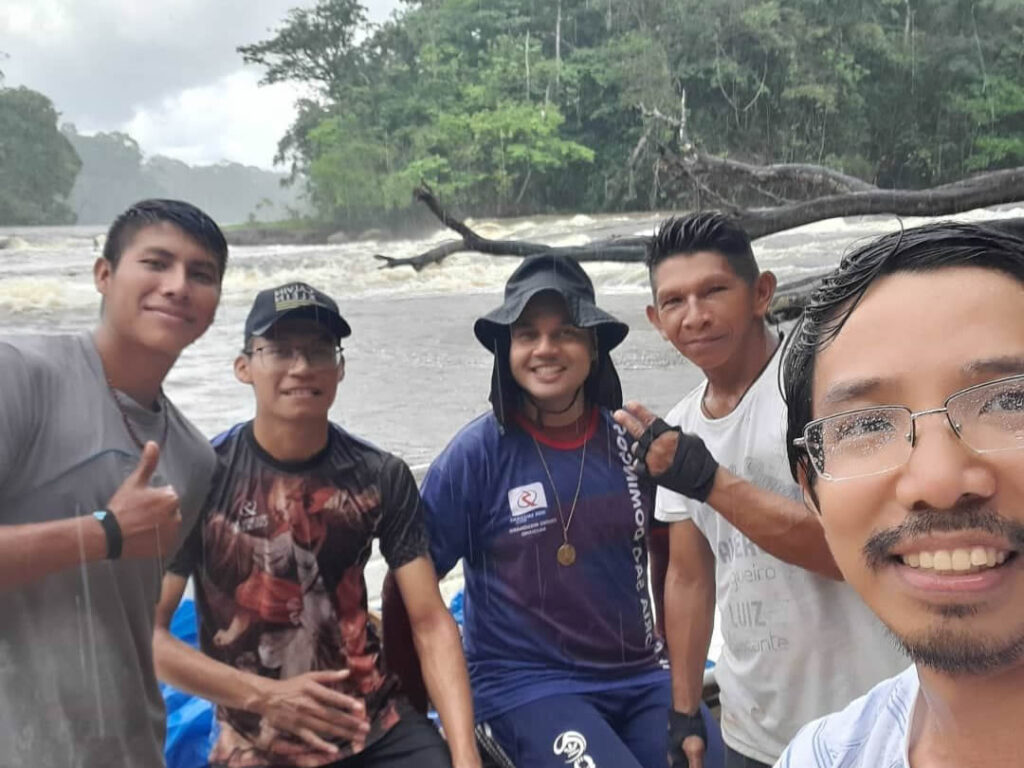
You said that there are other missionary communities besides San Gabriel? How is this? How does the missionary work in Rio Negro function?
Because it has more connections and services, our Sao Gabriel community is the base seeing to links and logistics with our missions in the interior, especially Maturacá (with the Yanomami people) and Iauaretê (in the “tukano triangle”). In these missionary situations there is no formal commerce, and when there is, the prices are extremely high. Therefore, all purchases of food, hygiene products, materials for repairs and fuel for the boats used in the itinerance (pastoral visits to the riverside communities) and the production of electricity by generator, are done in São Gabriel and then sent by us, via river transport, to these locations. It is a very intense manual work, because we have to buy and then carry a lot of heavy materials to the boats that will take these products to our people who live and work in the other missions. We carry food bags, Styrofoam boxes with meat and several “carotes” (plastic containers for carrying liquids) of 50 litres of fuel each. Besides this, our house has several rooms, always available and prepared to host the missionary confreres who are passing through São Gabriel, either going to or returning from the other missions. It is a real work of assistance and networking.
And do you remember any powerful experiences from these “itinerance” on the rivers?
Yes, of course, in relation to these “itinerance”, one experience that impressed me deeply was the one at Maturacá. We had days of profound experience of the encounter with God through the encounter with others, with those who are different from us, with our neighbour, because we made a pastoral visit to the Yanomami people’s communities.

In addition to the headquarters of the Salesian Mission at Maturacá, we visited six other communities (Nazaré, Cachoeirinha, Aiari, Maiá, Marvim and Inambú). These were intense and challenging days. Firstly, because each community is very distant from one another and access is only possible by means of the tributaries of our beloved Amazon, travelling in a motorised boat (called a voadeira), under strong sun or heavy rain. Secondly, they are traditional Yanomami communities, so culture shock is inevitable, as they have habits, customs and ways of life that are completely different to us non-indigenous people. Thirdly, there are the practical challenges, such as the lack of electricity 24 hours a day, no telephone signal, little choice and variety of food, bathing and washing clothes in the river, living with insects and other animals of the forest… A real anthropological and spiritual “dive”. We celebrated the Eucharist in all the communities and several baptisms in some of them, we visited the families and prayed with the children. It was a fantastic experience of encounter, special days, days of gratitude, days of returning to the most essential aspects of our faith and Salesian Youth Spirituality: love for Jesus, fruit of our personal encounter with Him, and the love for our neighbour that is manifested in the desire to be with him and to become his friend.
This remarkable “itinerance” undoubtedly left you with much to learn in your life, true?
These pastoral visits are a real “school” and give us life lessons: detachment, because the more “things” we accumulate, the “heavier” the journey becomes; living in the present, because in the middle of Amazonia, without access to the means of information, the only contact is with present reality, whatever is around us, the forest, the river, the sky, the boat; gratuitousness, because we face difficulties and weariness without expecting gestures of human gratitude. Finally, geographical itinerance leads us to an “inner itinerance”, conversion, a return to the essentials of life and faith. To sail the rivers of Amazonia is to sail to interior rivers. To be in the missions is to be constantly provoked to free oneself from preconceived and rigid ideas in order to be freer to love and welcome the other and to announce the joy of the Gospel to them.
A very special lesson that I learn every day in the missions is that to be a good missionary I must be someone deeply marked and touched by the merciful love of God, and only from this experience can I be ready to “take” and “show” everywhere how God loves us and can transform our whole life. I also learn that, being a missionary, I take and show this love, first of all with my own life given to the mission. Without saying a word, by the simple fact of leaving my origins and embracing new cultures, I can reveal that the love of God is worth much more than all the things we consider valuable in our lives. Therefore, the missionary’s life is his first and greatest witness and proclamation!
You have had this missionary experience, but can it be said that you too have been evangelised? What has given you satisfaction in your heart?
Finally, being in São Gabriel, the most indigenous municipality in Brazil, “home” to 23 multicultural and multilingual ethnic groups, I realize every day that, in calling us to be missionaries, God calls us to be capable of being enchanted by the beauty and mystery which is each person and each culture of our world. Therefore, following the example of the Master, Jesus, missionary of the Father, we are called to “empty ourselves” of everything in order to “fill ourselves” with the beauties and marvels present in every corner of the earth and to associate them with the preciousness of the Gospel. This was one of the most profound experiences for me.
At the end of all this, I believe that satisfaction comes from the smiles and cries of our boys and girls playing, running, jumping, throwing a ball, telling their jokes; it comes from the curious and brilliant glances of the men and women of the forest; joy comes from contemplating the beauty of nature, the generosity of the people and the perseverance of the Christians who remain, at times, for months without the presence of a priest, but who look at and touch with love and devotion the little feet of the small image of Our Lady or the cross on the altar. In the Salesian missions of Rio Negro one learns to live without excesses, to value simplicity and to rejoice in the little things of life. Here all becomes a feast, dance, music, celebration, faith. Here one lives in the same poverty and simplicity as at the beginning of Valdocco, where Don Bosco, Mamma Margaret, Dominic Savio, Fr Rua and so many others lived and were sanctified. Being in Amazonia certainly enriches us as people, Christians and Salesians of Don Bosco!
Interview of Don Gabriel ROMERO with the young Salesian Leonardo Tadeu DA SILVA OLIVEIRA, from the Province of São João Bosco based in Belo Horizonte, Minas Gerais, Brazil.


